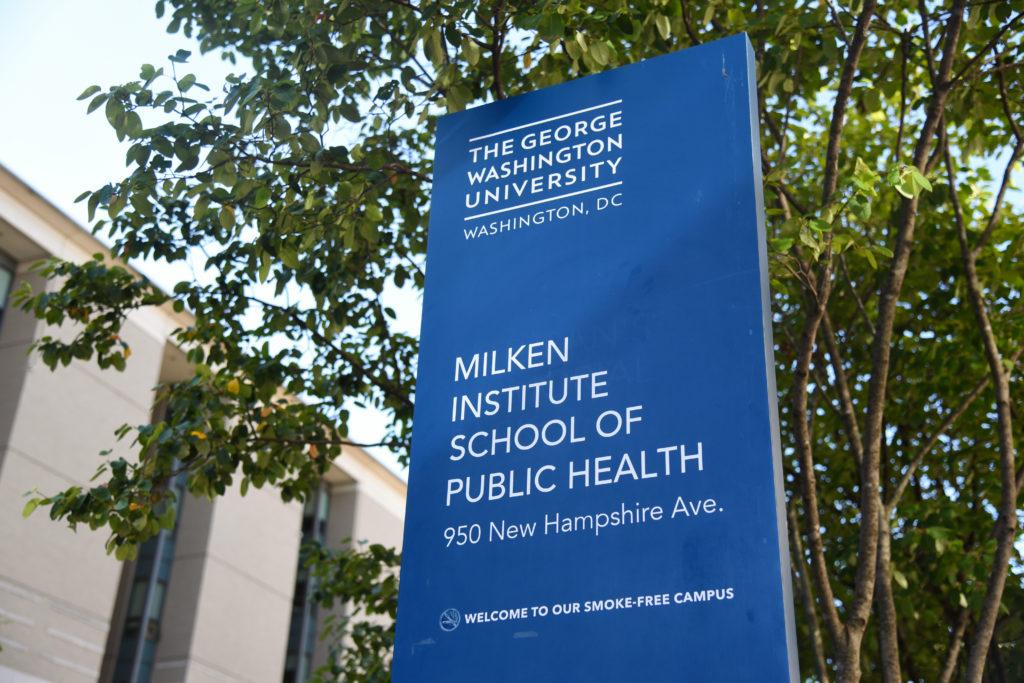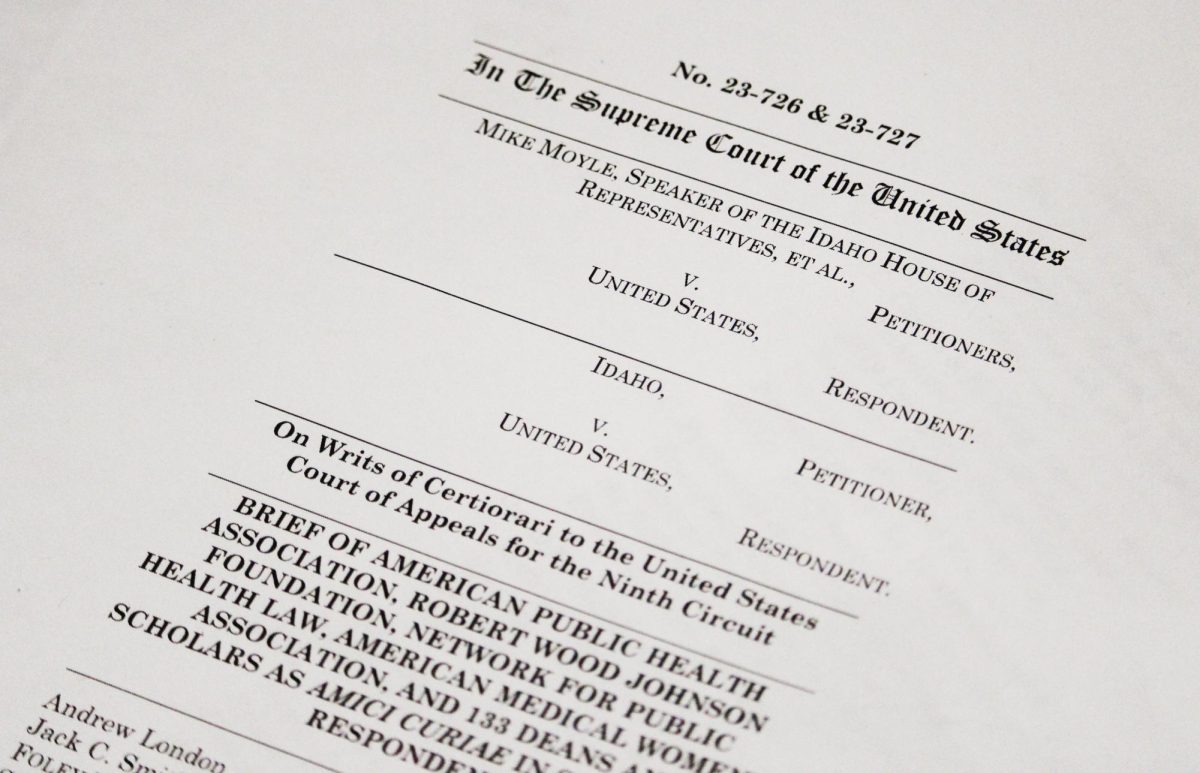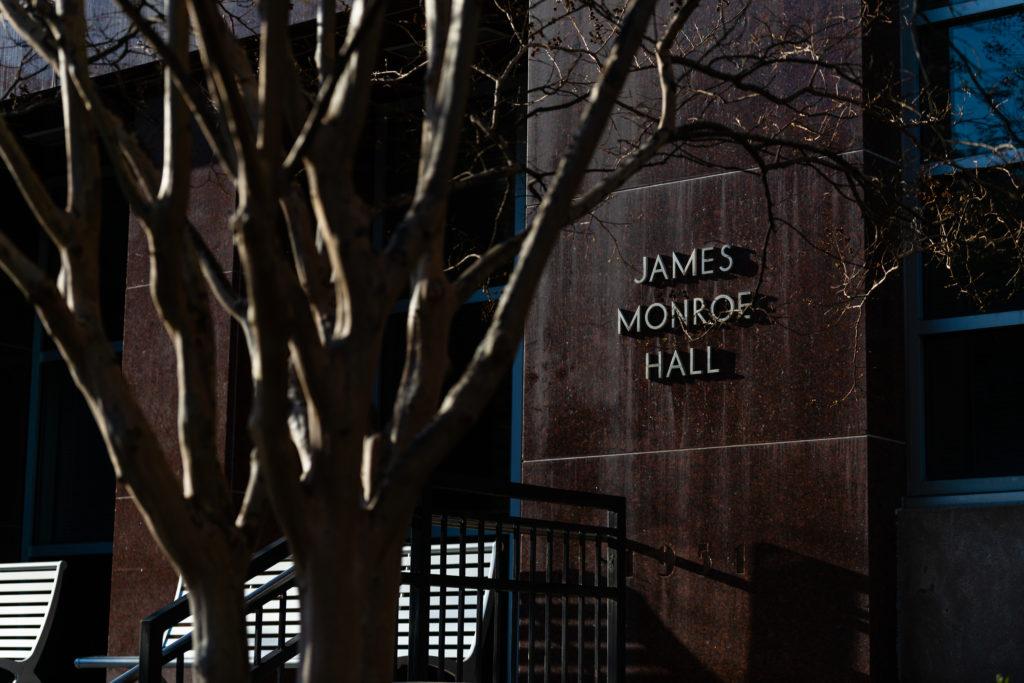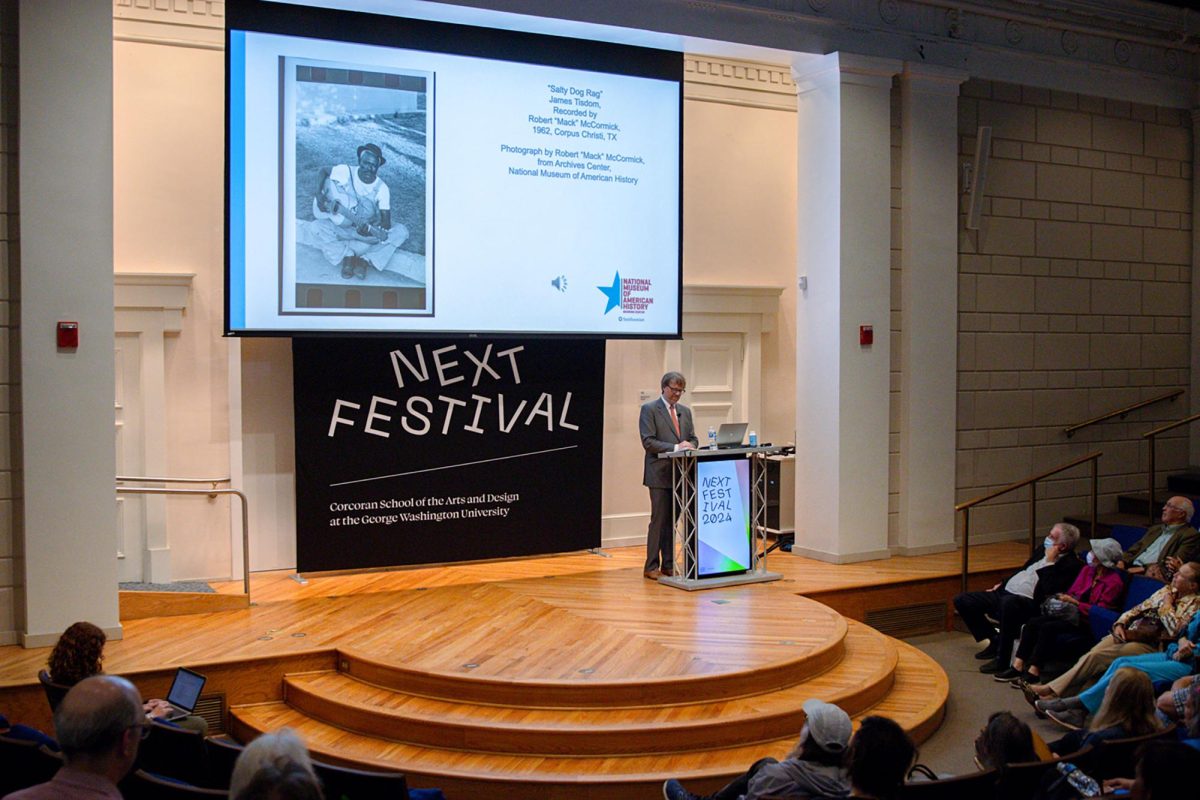Four staff members are advising D.C. officials on how to effectively distribute a COVID-19 vaccine once one is available.
One Milken Institute School of Public Health professor and three School of Medicine and Health Sciences staff members are part of the District’s vaccine advisory committee, which is housed in Mayor Muriel Bowser’s office. The committee is responsible for providing feedback on the safety of potential vaccines and helping the mayor’s office develop methods to publicize the vaccine, according to a press release.
A spokesperson for Bowser’s office did not return multiple requests for comment.
“The primary objective of the committee is to advise the director of D.C. Health on effective strategies to communicate public health information regarding safety and effectiveness of the vaccine to promote vaccine confidence and uptake,” the release states. “Additional objectives include advising on messaging and outreach strategies to counter misinformation and to promote confidence among high-risk populations.”
The committee’s 16 members meet every two weeks and will continue until the general public of D.C. is vaccinated, according to the release.
Committee members Elmer Huerta, a clinical professor of medicine, and Marc Siegel, an associate professor of medicine, did not return a request for comment through an SMHS spokesperson.
Andrea Anderson, the associate chief of the Division of Family Medicine within the Medical Faculty Associates, is also serving on the committee, according to the Mayor’s office’s website.
Alan Greenberg, the chair of Milken’s Department of Epidemiology and a member of the committee, said he hopes to use his expertise in infectious disease epidemiology to aid the city’s COVID-19 response.
“As an infectious disease epidemiologist I hope to contribute my experience in the collection and interpretation of the data that will be use to inform D.C. Health decisions about COVID-19 vaccine-related issues,” Greenberg said in an email.
Greenberg said the group has met “several times” so far and he hopes the committee will thoroughly communicate to people about the potential benefits and risks of a vaccine, especially given polling that many people are unwilling to be vaccinated. September research from the Pew Research Center revealed that about half of Americans said they would not get a COVID-19 vaccine if it became available.
“I hope the committee will be able to make helpful recommendations to D.C. Health about how to communicate the potential benefits and risks of COVID-19 vaccines as they become available,” Greenberg said.
Saad Omer, an associate dean of global health research at the Yale University School of Medicine, said D.C. officials should focus on building trust in underserved and neglected communities that may not initially trust a vaccine or have sufficient access to it.
He pointed to the Tuskegee Study – a highly criticized experiment from 1932 to 1972 in which the federal government infected Black men with syphilis without their knowledge and did not provide them with adequate treatment – as an example of distrust in public health. Research suggests that historical events like the Tuskegee Study have led to a greater level of skepticism of American health care in Black communities than those in White communities.
“The other thing, bad thing, is some concern that folks have around the vaccine and it could turn down acceptance of the vaccine,” he said. “There is some mistrust, an understandable mistrust in a few communities of color as well.”
Omer, who served on a panel at the National Academies of Sciences, Engineering and Medicine to develop a national framework for the allocation of a COVID-19 vaccine, said District officials can leverage existing relationships with underserved populations to ensure that all community members have information about and access to the vaccine.
“Work with the community, work with validators and community leaders,” Omer said. “Work with them and focus on building and enhancing and leveraging trust.”
GW researchers performing COVID-19 vaccine trials surpassed their goal of ensuring people of color make up 30 percent of the trial population, with half of the subjects chosen for vaccine trials being people of color.
Omer said making vaccines free and accessible would help localities ensure the vaccine is distributed equitably among community members.
“This is a pandemic, and we all benefit from high vaccination rates, so I think there should be zero out-of-pocket costs,” Omer said. “That’s one thing. The other thing is these vaccines should be accessible.”










